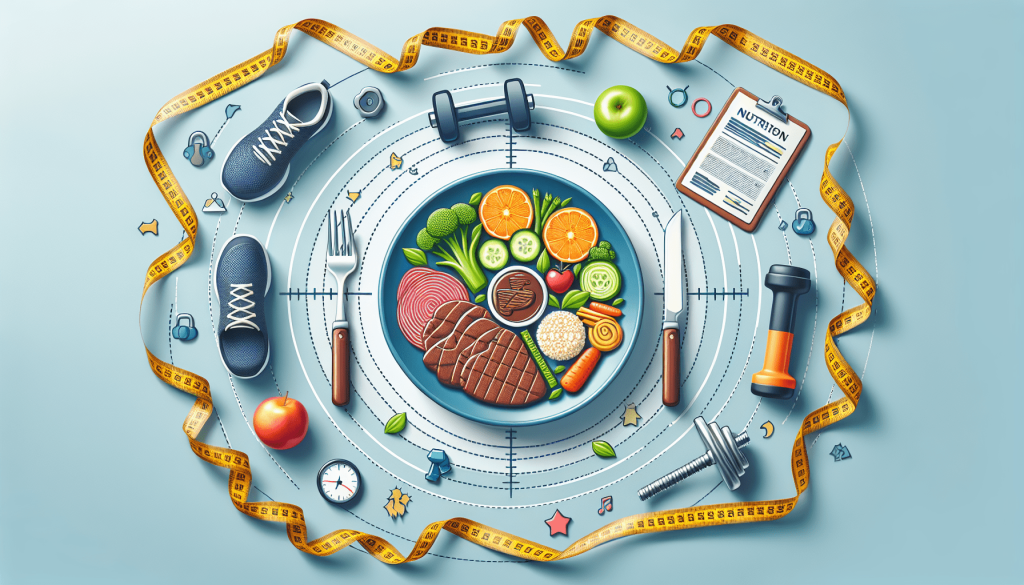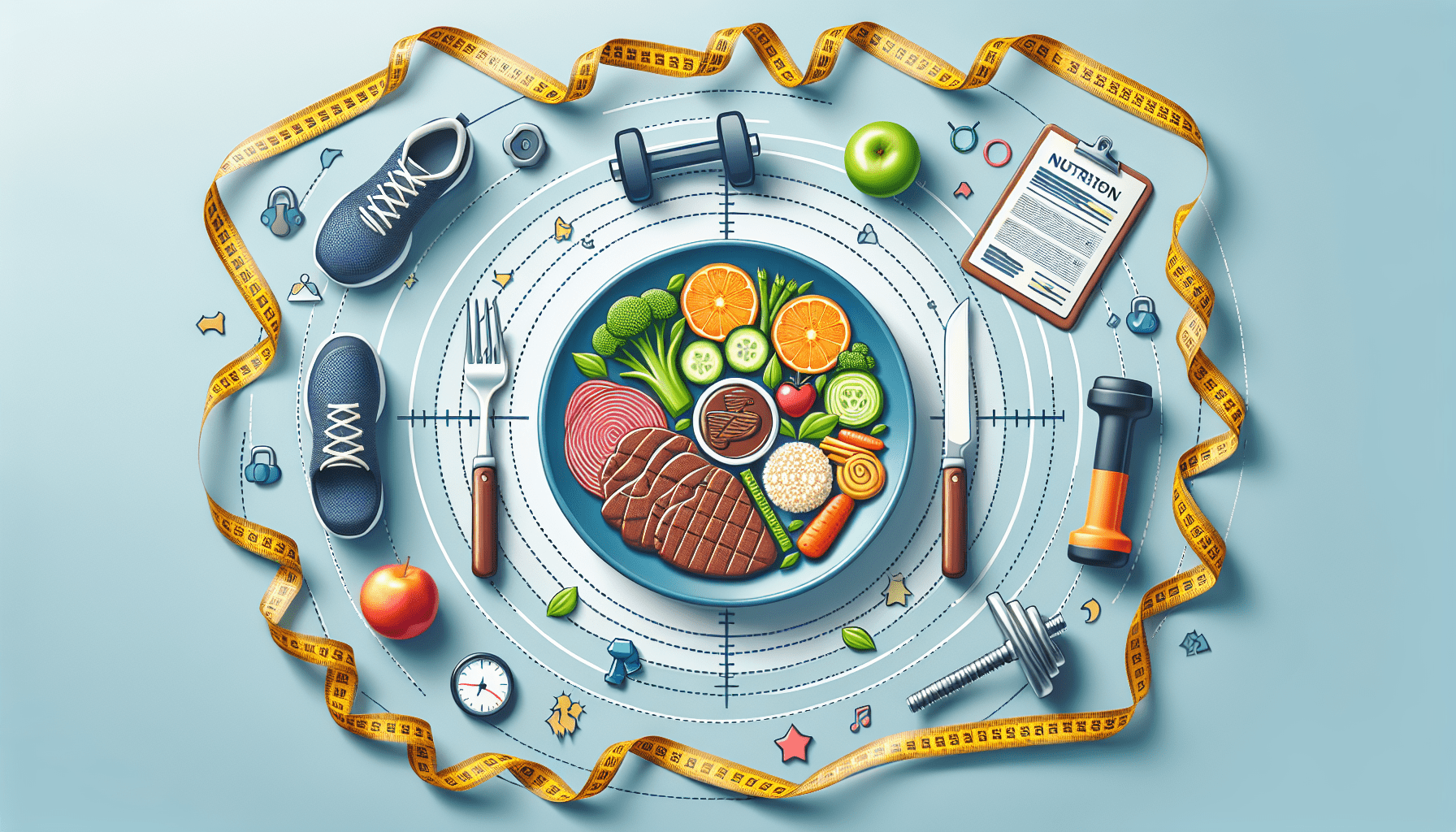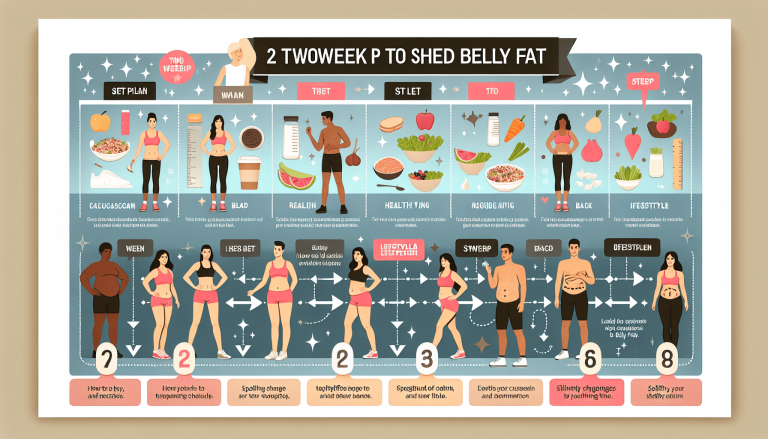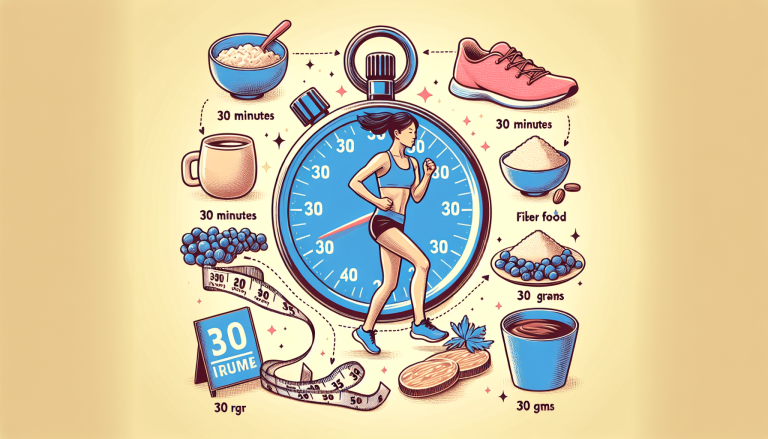What Is The Best Method To Lose Weight?
If you’ve ever wondered about the most effective way to shed those extra pounds, you’re not alone. When it comes to losing weight, there are countless methods and strategies out there. From trendy diets to intense workout regimens, the options can be overwhelming. So, what is the best method to lose weight? In this article, we’ll explore various approaches and uncover the key factors to consider on your weight loss journey. So, get ready to discover the path that suits you best and say hello to a healthier, happier you!

1. Calorie Deficit
Losing weight ultimately comes down to creating a calorie deficit, which means consuming fewer calories than your body needs to maintain its current weight. In order to do this effectively, it’s important to understand your caloric needs, calculate your caloric intake, and monitor your calorie consumption.
1.1 Determining Caloric Needs
Determining your caloric needs is a crucial step in creating a calorie deficit. It’s important to know how many calories your body requires to maintain its current weight. There are several factors that can affect your caloric needs, such as age, gender, height, weight, and activity level. Consulting with a registered dietitian can help you accurately determine your specific caloric needs.
1.2 Calculating Caloric Intake
Once you determine your caloric needs, the next step is to calculate your daily caloric intake. This involves tracking the number of calories you consume from food and beverages throughout the day. You can use various tools and apps to help you keep track of your caloric intake. It’s important to be mindful of portion sizes and the nutritional content of the foods you consume.
1.3 Monitoring Calorie Consumption
Monitoring your calorie consumption is essential to ensure you’re staying within your prescribed caloric intake. Keeping a food diary or using a calorie tracking app can be helpful in this process. By tracking your calorie consumption, you can identify any areas where you may be consuming excess calories and make adjustments accordingly. Regularly reviewing your food diary can also help you stay accountable to your goals and make any necessary changes to your eating habits.
2. Healthy Diet
Maintaining a healthy diet is an integral part of any weight loss journey. Here are some key aspects to consider when it comes to achieving a healthy diet.
2.1 Balanced Nutrition
A balanced nutrition plan is crucial for providing your body with the necessary nutrients while managing caloric intake. Focus on incorporating a variety of foods from all food groups, including fruits, vegetables, whole grains, lean proteins, and healthy fats. Aim for a well-rounded diet that provides the vitamins, minerals, and other essential nutrients your body needs to function optimally.
2.2 Portion Control
Portion control plays a significant role in managing caloric intake. It’s important to be mindful of portion sizes and avoid overeating. Consider using smaller plates and bowls to help control portion sizes, and pay attention to hunger and fullness cues to avoid mindless snacking. By practicing portion control, you can still enjoy the foods you love while maintaining a calorie deficit.
2.3 Types of Diets
There are various types of diets that can be effective for weight loss. Some popular options include the Mediterranean diet, the ketogenic diet, and intermittent fasting. It’s important to choose a diet that aligns with your personal preferences and lifestyle. Consulting with a registered dietitian can provide you with guidance on selecting a diet that suits your individual needs and goals.
2.4 Meal Timing
Meal timing can also play a role in weight loss. Some individuals find success with eating smaller, more frequent meals throughout the day, while others prefer a more traditional three-meal structure. Ultimately, the best meal timing approach is one that fits your schedule and allows you to maintain a calorie deficit. Experiment with different meal timing strategies to find what works best for you.
3. Regular Exercise
In addition to caloric deficit and a healthy diet, regular exercise is a key component of any successful weight loss plan. Engaging in physical activity helps to burn calories, build muscle, and improve overall fitness. Here are some important considerations when it comes to incorporating regular exercise into your routine.
3.1 Importance of Exercise for Weight Loss
Exercise is essential for weight loss as it helps increase your overall energy expenditure, contributing to a greater calorie deficit. Additionally, regular exercise can enhance metabolism, improve cardiovascular health, and support muscle growth. It’s important to find physical activities that you enjoy and can sustain in the long term.
3.2 Cardiovascular Exercises
Cardiovascular exercises, also known as aerobic exercises, are great for elevating the heart rate and burning calories. They include activities such as running, swimming, cycling, and dancing. Aim for at least 150 minutes of moderate-intensity aerobic exercise or 75 minutes of vigorous-intensity aerobic exercise per week. Gradually increase the intensity and duration of your workouts to challenge your body and continue making progress.
3.3 Strength Training
Strength training is another important component of a weight loss exercise routine. By incorporating resistance exercises, you can build lean muscle mass, which in turn increases your metabolism and promotes fat loss. Include exercises that target all major muscle groups, such as squats, lunges, push-ups, and overhead presses. Aim for at least two to three strength training sessions per week.
3.4 Incorporating Physical Activity into Daily Routine
In addition to structured workouts, finding ways to incorporate physical activity into your daily routine can contribute to weight loss. Take the stairs instead of the elevator, walk or bike instead of driving short distances, or engage in active hobbies such as gardening or dancing. These small lifestyle changes can add up and contribute to your overall calorie expenditure.
4. Behavior and Lifestyle Changes
Creating lasting change involves addressing your behavior and making lifestyle adjustments that support your weight loss journey. Here are some strategies to help you establish healthy habits and routines.
4.1 Setting Realistic Goals
Setting realistic and achievable goals is essential for long-term success. Instead of focusing solely on the number on the scale, consider setting goals related to behavior changes and non-scale victories. For example, aim to increase your daily steps, improve strength in certain exercises, or fit into a specific clothing size. Celebrate these milestones along the way to stay motivated and encouraged.
4.2 Overcoming Emotional Eating
Emotional eating can sabotage weight loss efforts. Identifying triggers for emotional eating and finding alternative coping mechanisms is crucial. Practice stress management techniques, such as deep breathing, meditation, or engaging in hobbies that bring you joy. Seek support from friends, family, or a therapist if emotional eating becomes a persistent struggle.
4.3 Managing Stress
Stress can have a significant impact on weight loss. When you’re stressed, your body releases hormones that can lead to increased appetite and cravings for unhealthy foods. Finding effective stress management techniques, such as exercise, mindfulness, or spending time in nature, can help you better cope with stress and reduce its negative impact on your weight loss efforts.
4.4 Establishing Healthy Habits and Routines
Establishing healthy habits and routines can greatly contribute to a successful weight loss journey. Plan your meals and snacks in advance to avoid impulsive food choices, prioritize sleep to support overall well-being and recovery, and find ways to incorporate regular physical activity into your daily routine. Remember, consistency is key when it comes to making lasting lifestyle changes.

5. Hydration
Proper hydration is often overlooked but can play an important role in weight loss. Here’s why staying hydrated is crucial and how you can increase your water consumption.
5.1 Importance of Water for Weight Loss
Drinking an adequate amount of water is important for weight loss for several reasons. Water helps to increase metabolism, suppress appetite, and support healthy digestion. Additionally, staying hydrated can prevent fluid retention and promote overall well-being. It’s important to prioritize water consumption throughout the day.
5.2 Recommended Daily Intake
The recommended daily water intake varies depending on factors such as age, weight, activity level, and climate. As a general guideline, aim to drink at least 8 cups (64 ounces) of water per day. However, individual needs may vary, so it’s important to listen to your body and drink when you feel thirsty.
5.3 Strategies to Increase Water Consumption
If you struggle with drinking enough water, there are various strategies you can try to increase your intake. Carry a reusable water bottle with you throughout the day as a reminder to drink, flavor your water with fruits or herbs to make it more enjoyable, and set reminders on your phone to prompt you to drink water at regular intervals. You can also consume water-rich foods such as fruits and vegetables to complement your hydration efforts.
6. Quality Sleep
Getting enough quality sleep is often overlooked but is crucial for weight loss and overall well-being. Here’s why prioritizing sleep is important and how you can improve your sleep quality.
6.1 Impact of Sleep on Weight Loss
Inadequate sleep can disrupt hormonal balance, leading to increased appetite, cravings, and reduced calorie expenditure. Lack of sleep can also negatively affect decision-making and impulse control, making it more challenging to stick to a healthy eating plan. Prioritizing quality sleep is essential for weight loss success.
6.2 Establishing a Consistent Sleep Schedule
Establishing a consistent sleep schedule helps regulate your body’s internal clock and improve sleep quality. Aim for a consistent bedtime and wake-up time, even on weekends. Create a relaxing bedtime routine to signal to your body that it’s time to wind down and prepare for sleep. Avoid stimulating activities, such as using electronic devices or consuming caffeine close to bedtime.
6.3 Creating a Sleep-Friendly Environment
Creating a sleep-friendly environment can greatly improve the quality of your sleep. Make sure your bedroom is cool, dark, and quiet. Invest in a comfortable mattress and pillows that support your sleep posture. Minimize distractions, such as electronic devices or excessive noise, and consider using blackout curtains or eye masks to block out any unwanted light.
7. Mindful Eating
Practicing mindful eating techniques can help you develop a healthier relationship with food and support weight loss efforts. Here’s how you can cultivate a mindful eating approach.
7.1 Practicing Mindful Eating Techniques
Mindful eating involves fully engaging your senses and paying attention to your eating experience. Take the time to savor each bite, chew slowly, and pay attention to the flavors and textures of your food. Avoid distractions, such as eating in front of the TV or while scrolling on your phone. By practicing mindful eating, you can better tune in to your body’s hunger and fullness cues.
7.2 Paying Attention to Hunger and Fullness Cues
Listening to your body’s hunger and fullness cues is crucial for maintaining a healthy relationship with food and managing portion sizes. Eat when you’re hungry and stop eating when you’re comfortably full, but not overly stuffed. Avoid eating out of boredom or for emotional reasons. By paying attention to these cues, you can better regulate your calorie intake and support your weight loss goals.
8. Seeking Professional Guidance
Seeking professional guidance can provide you with personalized advice and support on your weight loss journey. Here are two professionals who can provide valuable guidance.
8.1 Consulting a Registered Dietitian
A registered dietitian is a qualified professional who can provide tailored nutrition advice to help you achieve your weight loss goals. They can assess your specific needs, provide meal planning guidance, and address any nutritional deficiencies or challenges you may face. Consulting with a registered dietitian can ensure you’re following a balanced and sustainable eating plan.

8.2 Working with a Personal Trainer
A personal trainer is a valuable resource for creating an effective and safe exercise program tailored to your individual needs and goals. They can provide guidance on proper form, progression, and incorporate varied exercises to keep you motivated. Working with a personal trainer can help maximize the efficiency of your workouts and ensure you’re engaging in exercises that are appropriate for your fitness level.
9. Avoiding Fad Diets and Quick Fixes
When it comes to weight loss, it’s important to avoid falling into the trap of fad diets and quick fixes. Here’s why and how to adopt a sustainable approach.
9.1 Understanding the Dangers of Fad Diets
Fad diets often promise quick, drastic weight loss results, but they are typically unsustainable and can have negative impacts on your health. They often restrict entire food groups, leading to nutrient deficiencies and an unhealthy relationship with food. It’s important to adopt a more balanced and sustainable approach to weight loss.
9.2 Sustainable Weight Loss Approach
A sustainable weight loss approach focuses on making gradual and lasting changes to your lifestyle. Instead of relying on restrictive diets, focus on creating a well-rounded eating plan that includes a variety of nutritious foods. Combine this with regular exercise and adopting healthy habits for long-term success. Remember, slow and steady progress is more likely to lead to lasting results.
10. Mental and Emotional Well-being
Taking care of your mental and emotional well-being is crucial for overall health and can support your weight loss efforts. Here are some strategies to prioritize your mental and emotional well-being.
10.1 Cultivating a Positive Body Image
Cultivating a positive body image involves accepting and appreciating your body as it is, regardless of its shape or size. Focus on celebrating what your body can do and engage in positive self-talk. Surround yourself with positive influences, whether it’s social media accounts that promote body positivity or supportive friends and family members.
10.2 Addressing Emotional Triggers
Identify any emotional triggers that may lead to unhealthy eating habits and find alternative ways to cope with these emotions. Engage in stress-relief activities, such as journaling, practicing mindfulness, or engaging in hobbies that bring you joy. Consider seeking professional help, such as therapy or counseling, if emotional triggers become overwhelming or challenging to manage on your own.
10.3 Seeking Support from Friends and Family
Having a support system can greatly contribute to your weight loss journey. Seek support from friends and family members who understand and support your goals. Share your progress and challenges with them, and lean on them for encouragement and accountability. Consider joining a weight loss support group or seeking an online community of individuals with similar goals to connect with.
10.4 Incorporating Stress-Relief Activities
Stress can often trigger unhealthy eating habits and hinder weight loss progress. Incorporating stress-relief activities into your routine can help manage stress levels and support your overall well-being. Explore activities such as yoga, meditation, deep breathing exercises, or engaging in hobbies that bring you joy. Finding healthy outlets for stress can greatly contribute to your weight loss journey.
By following these comprehensive strategies for weight loss, you can embark on a journey that not only helps you achieve your desired weight, but also improves your overall well-being. It’s important to remember that weight loss is a journey, not a destination, and nurturing a healthy lifestyle is key to long-term success. Seek professional guidance, make sustainable changes to your diet and exercise routine, and prioritize your mental and emotional well-being along the way. Remember, you are capable of achieving your weight loss goals with dedication and perseverance. Good luck on your journey to a healthier you!
Additional Resources

You might be familiar with the weight loss wonders of Ozempic, but have you heard of the latest phenomenon sweeping the U.S. that’s claiming even more dramatic results?
Imagine a group of over 24,000 people, all shapes and sizes, but every single one of them is lean, healthy, and full of vitality.
With NO gyms, NO rabbit diets… And definitely NO painful injections or surgical interventions.
And They love to eat! Indulging in high-calorie, scrumptious meals without a hint of weight gain. Sounds too good to be true?
And they can do all that, because they have a secret! It is the ONE reason for their surprising low levels of body fat!
They’ve all unlocked a brain chemical that drastically increases resting metabolism (the part of your metabolism that burns fat while you sleep or rest).
And they all did it with the help of the man who discovered it…
Dr. Posner MD, one of our country’s leading weight loss specialists!
Angel is one of them and when she started…
She dropped 11Ibs in her first week and then, she reached her ideal weight in the coming months.
The good news is that you can too unlock the same chemical in your brain and melt 11Ibs in your first week like thousands already have…
You can see exactly what to do on the page below!






